Kay Ivey lifts mask rules, urges common sense
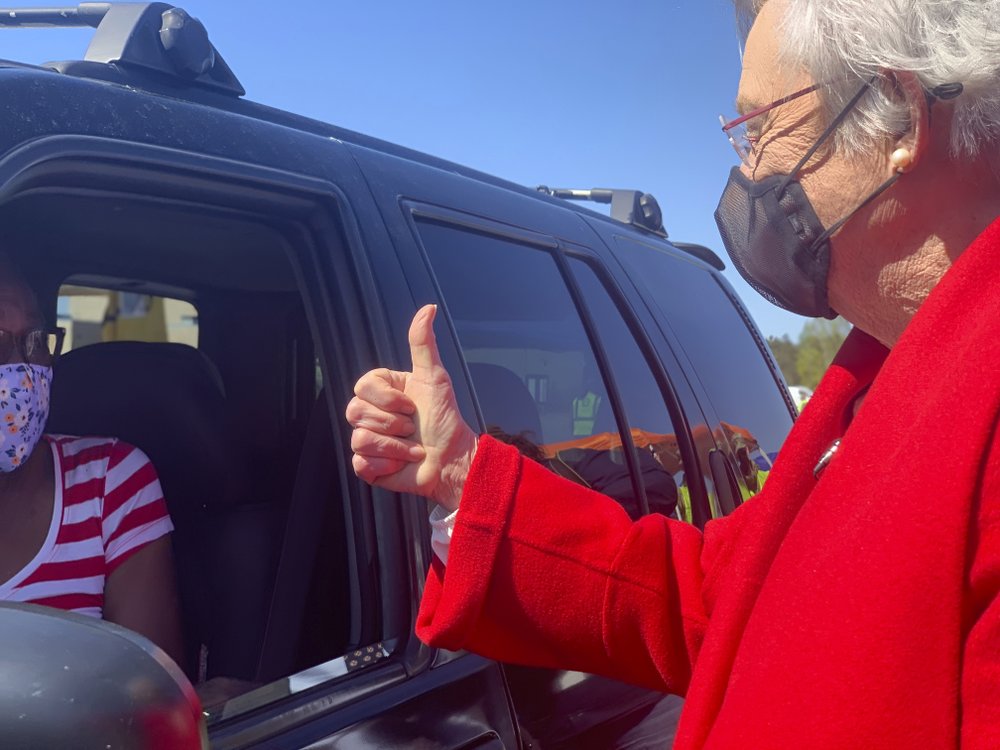
Gov. Kay Ivey said Wednesday that Alabama is shifting to personal responsibility in the fight against COVID-19, keeping her promise to let a statewide face mask order expire Friday. Ivey said she’s issuing a “greatly slimmed down” health order that has few restrictions. It encourages people to keep taking precautions such as voluntarily wearing masks, but no longer includes a statewide mask order. Alabama opened vaccine eligibility to anyone 16 and older two days ago, and state health officials said virus hospitalizations, percentage of positive tests, and daily case numbers are hitting some of the lowest numbers in a year. “We are finally rounding the corner. While we haven’t whipped this deadly disease just yet, it appears that, thank the good Lord we are in the home stretch. Please, please continue to use good common sense and we will see the end of COVID-19 soon,” Ivey said. The Republican governor said she’ll keep wearing a mask around others after Friday, and urged other Alabamians to do the same. She also urged people to respect businesses that require customers to wear masks. The lifting of restrictions comes despite Alabama ranking last in the country for the percentage of people who have received at least one dose of the COVID-19 vaccine, according to data from the Centers for Disease Control and Prevention. Only 25% of Alabama’s population has received at least one dose, far short of the 70% or more that many experts say is necessary to achieve herd immunity, which would protect people who don’t protect themselves. Ivey’s latest order also goes against a request from President Joe Biden for states to maintain mask orders to stave off a fourth surge of the virus. Birmingham and Montgomery will keep mask mandates in place beyond Friday. Mayor Randall Woodfin said Birmingham’s mask ordinance is needed because COVID-19 continues to be a health threat and most people in the city and the state have not been fully vaccinated. “We will continue to make decisions that we believe will save lives. They may not be popular,” Woodfin said Tuesday. The governor’s new health order — illustrated in state materials with a stoplight showing the green light illuminated, reflecting improving conditions and fewest restrictions — keeps restrictions for quarantined individuals and limits on hospital and nursing home visitations, but has few other restrictions. According to researchers at Johns Hopkins, the seven-day rolling average of daily new cases in Alabama did not increase over the past two weeks, going from 438.86 new cases per day on March 22 to 304.86 new cases per day on April 5. “We are not out of woods yet, but we do feel better about where we are now,” State Health Officer Scott Harris said. Republished with the permission of the Associated Press.
Health officials urging masks, caution over Easter holiday
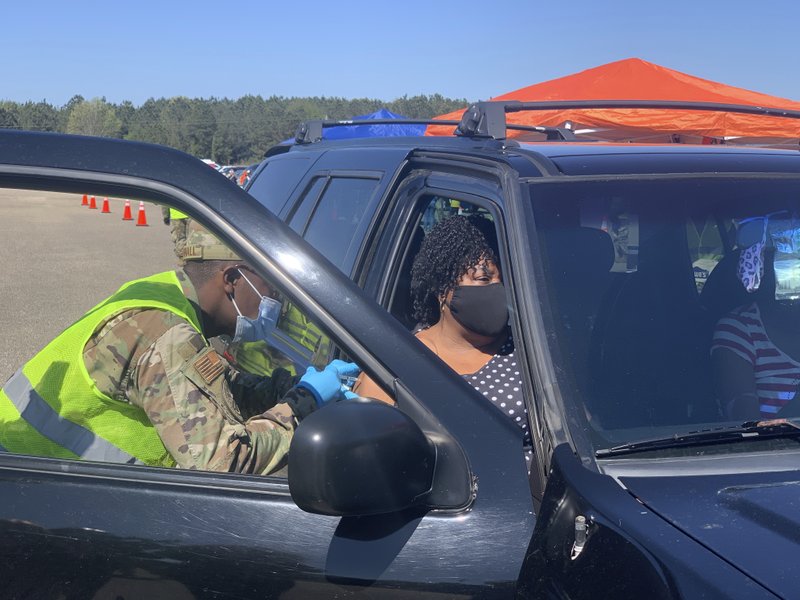
With the potential for crowded churches and big family gatherings over Easter, health officials are urging people to follow Alabama’s mandate for face masks and social distancing to avoid a new surge of COVID-19. Only 663,000 or so of the state’s 4.9 million residents are fully vaccinated against the new coronavirus, and Alabama is last in the nation in its rate of immunization. But many congregations are planning indoor services Sunday to celebrate the Christian holiday a year after Easter services were canceled or held outdoors. Since relatively few people are fully protected against the illness, Dr. Ellen Eaton of the University of Alabama at Birmingham said it’s “probably not the time” to participate in large indoor gatherings like church or family meals where people aren’t distanced and wearing masks, which are proven to slow the spread of the virus. “The concern is that with Easter, a lot of these spaces are going to be crowded, packed, more children and potentially travelers,” Eaton, an infectious diseases expert, told a news briefing Friday. Relatives coming in from out of town could bring in new strains of virus variants into communities, she said. Yet, infection likely would be spreading quickly from person to person before health experts even realized an area had become a “hot spot” of illness. State Health Officer Scott Harris said, “We still have a ways to go” in controlling the virus. “We still want people to be alert, to be careful, to remember the pandemic is not over yet,” said Harris, a doctor who leads the Alabama Department of Public Health. More than 10,600 people have died of COVID-19 in Alabama, and 516,000 confirmed cases have been reported. Cases are at the lowest point since 11 months ago, and the 347 people hospitalized statewide with the illness on Friday was the lowest in almost a year, state statistics showed. Everyone 16 and older will be eligible for COVID-19 vaccinations in Alabama beginning Monday, and Gov. Kay Ivey has said the state health rule requiring facial coverings in public will expire on Friday. Some businesses and organizations have said they will keep mask rules in place, and the city of Birmingham will consider Tuesday whether to continue requiring face masks. Birmingham Council President William Parker used a football analogy to explain the need for continuing the rule. “You can’t spike the ball on the 5-yard line. You have to run it into the end zone. And so we’re at the five-yard line now. We still have a lot more work to do before we can rid ourselves of COVID-19,” Parker told WBRC-TV. Republished with the permission of the Associated Press.
State study shows 30% of adults hesitant about COVID-19 vaccine
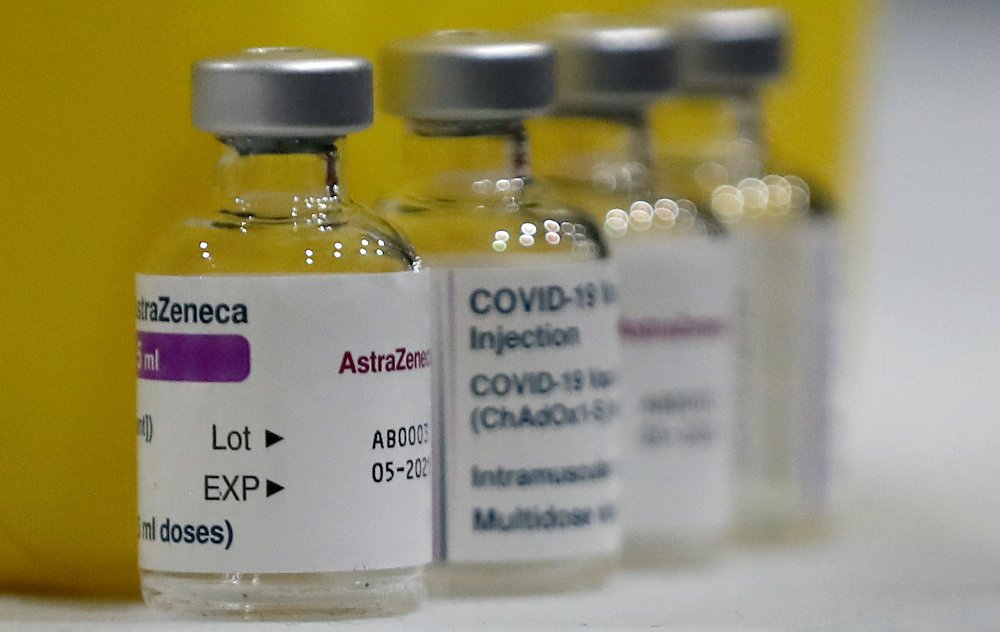
Alabama’s top health official said Friday that a study showed about 30% of adults in the state are hesitant to take the COVID-19 vaccine, a reluctance that concerns medical officials as they try to keep state case numbers on the decline. The Alabama Department of Public Health released the results of the survey done to gauge vaccine hesitancy as well as figure out how to craft messaging to reach reluctant groups. “There is around 30% of people who indicate they are not interested in being vaccinated,” State Health Officer Scott Harris told reporters. He said the hesitancy cuts across racial lines. He said the reasons vary from people who are staunchly against vaccinations to people who just have questions. Alabama on March 22 expanded eligibility for COVID-19 vaccinations to include more frontline workers; people 55 and older; those with intellectual and developmental disabilities; and residents age 16 to 64 with certain high-risk medical conditions. Alabama does not have an estimate of when it will open COVID-19 vaccine eligibility to all adults, Harris said, but added the state will meet the May 1 deadline set by President Joe Biden. “We are going to be able to expand well before May 1, I believe,” Harris said “This script is going to flip completely, you know from a month ago when people couldn’t find vaccine — it seems like no matter how hard they look — to in April, we’re going to have the opposite problem,” Harris said. Republished with the permission of the Associated Press.
Kay Ivey encourages mask wearing after mandate expires April 9
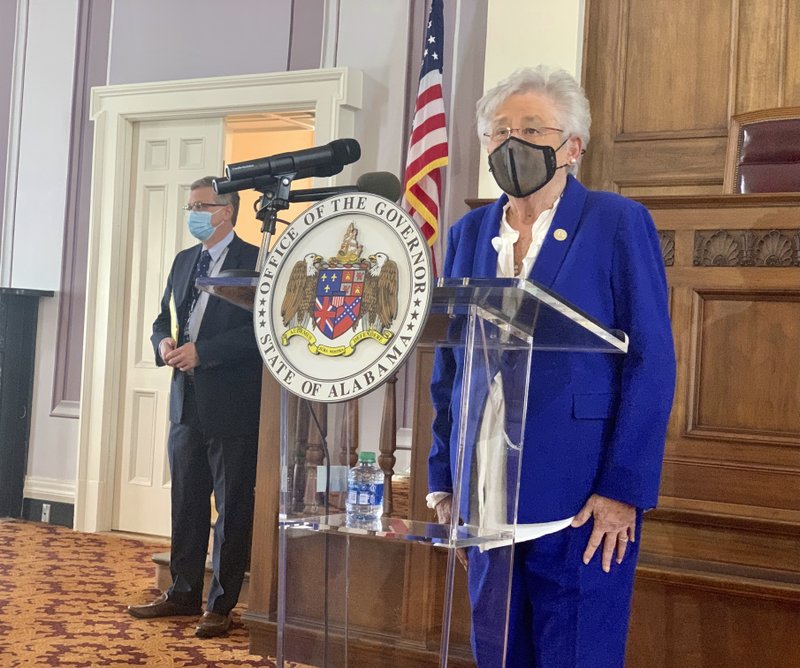
Alabama Gov. Kay Ivey this week urged people to wear masks in public after the statewide mask mandate expires next month. Ivey has been adamant that she will not extend the mask mandate past April 9. On Monday, her office released designs for signs for businesses to use to request patrons to wear masks. The designs range from “Mask Preferred” to “Mask Required For Service.” “After April 9, masks will no longer be a mandate, but they remain one of the most successful tools we have to keep folks safe from COVID-19,” Ivey said in a statement. “Masks are soon to be a memory but until then, let’s wear them out.” Alabama this week expanded eligibility for COVID-19 vaccinations. The expansion, which started Monday, will add more than 2 million people to the groups who can get a COVID-19 vaccination in Alabama, roughly doubling the number of people now eligible. The new eligible groups include more frontline workers; people 55 and older; those with intellectual and developmental disabilities; and residents age 16 to 64 with certain high-risk medical conditions. The qualifying medical conditions include cancer, chronic kidney disease, diabetes, smoking, obesity, sickle cell disease, and heart conditions. State Health Officer Dr. Scott Harris on Friday said most adults will now be eligible for shots and urged people to be patient as they seek vaccination appointments. “Probably between half and two-thirds of all the adults in the state are going to be covered,” Harris said. “So that will be a significant increase in demand.” The Alabama National Guard on Tuesday began a series of COVID-19 vaccine clinics around the state as health officials try to bring the shots to rural areas that may have fewer providers. The Alabama National Guard is providing first-dose COVID-19 vaccination clinics in 24 counties for the next three weeks. There will be a round of second-dose clinics April 13-30. Ivey activated guard units to set up the mobile sites to bring COVID-19 vaccinations to underserved and rural communities. A list of vaccinations clinics can be found at the Alabama Department of Public Health website. The vaccine will be administered at the clinics located in: Barbour, Bullock, Butler, Choctaw, Clarke, Coffee, Conecuh, Covington, Crenshaw, Dale, Dallas, Greene, Hale, Henry, Lowndes, Macon, Marengo, Monroe, Perry, Pike, Russell, Sumter, Washington, and Wilcox counties. There continues to be positive signs in the state. The number of COVID-19 patients in Alabama hospitals has dipped to below 400. It had been as high as 3,000 at the start of the year. Republished with the permission of the Associated Press.
Alabama to expand COVID-19 vaccine eligibility on March 22
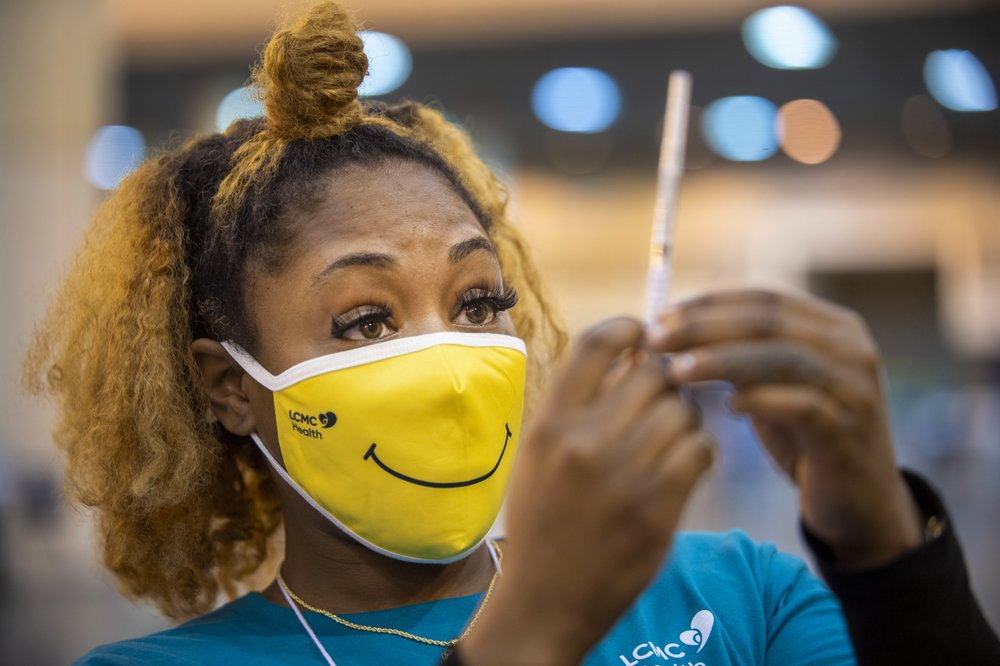
Alabama is expanding eligibility later this month for COVID-19 vaccinations to more frontline workers, residents with certain chronic health conditions, and people 55 and older, state officials announced Friday. “We have been concerned that many people at high risk and others engaged in close-contact work have not been eligible to receive the vaccine yet, but with the additional vaccine supply we are better able to meet the needs of Alabama residents,” Gov. Kay Ivey said in a statement. The expansion, starting March 22, will add over 2 million people to the groups who can receive a COVID-19 vaccination in Alabama, roughly doubling the number of people now eligible. The dramatic increase comes at a time when demand continues to exceed supply and will increase the competition to find shots. State Health Officer Scott Harris said Alabama expanded eligibility because of the expectations of the public — particularly as they see people in other states getting shots — and health officials’ expectations that the supply will jump over the coming weeks. “I would just encourage people to please remember to be patient. They have been patient for so long and we are really very very close to having enough vaccine to go around. I think in a month, probably six weeks at least, there is going to be more than an adequate supply of vaccine,” Harris told reporters Friday. The new eligible groups include more frontline workers; people 55 and older; those with intellectual and developmental disabilities; and residents age 16 to 64 with certain high-risk medical conditions. The qualifying medical conditions include cancer, chronic kidney disease, diabetes, smoking, obesity, sickle cell disease and heart conditions. More workers will also be eligible for the shots, including restaurant staff, transportation workers, construction workers, bank tellers, legal professionals and members of the news media. Alabama currently ranks near the bottom for the percentage of the population that has been vaccinated, according to numbers from the Centers for Disease Control and Prevention. About 16.1% of the state’s 4.9 million people have received at least one vaccination dose. Harris said the department conducted surveys to try to gauge vaccine hesitancy and found up to 30% of adults are reluctant to take the vaccine. Some of those are “people who simply just need better information. We need to find away to educate them,” Harris said. He said others are people who have “other ideas about vaccinations in general or even about the coronavirus event in general.” Since the pandemic began, more than 500,000 Alabamians have tested positive for COVID-19. Ivey has directed flags to be placed at half-staff on Saturday to honor and remember the more than 10,000 Alabamians who lost their lives to the COVID-19 pandemic, her office announced. The announcement of the expanded eligibility comes a year after the first COVID-19 case was identified in the state. Harris noted the remarkable work that went onto developing the vaccines. “The vaccine response to COVID-19 is really going to be like landing on the moon was for some of us of a certain age,” Harris said. Republished with the permission of the Associated Press.
Bill would replace state health officer with appointed post

An Alabama Senate committee on Wednesday advanced a bill that would let the governor pick the state’s top public health official. The Senate Health Committee voted 8-3 to advance the bill by Sen. Jim McClendon to the Senate floor. McClendon, an optometrist, said the change would make the position more accountable to elected leaders. But two other doctors on the committee argued it is wrong to interject politics into public health decisions. The state health officer, a position currently held by Dr. Scott Harris, is selected by the state public health committee which consists of members appointed by the Medical Association of the State of Alabama. The bill does away with the position of state health officer and creates the cabinet post of secretary of health who would be appointed by the governor. The secretary would then appoint a chief medical officer. “We now have a private club that names the members of the Board of Health and then those members instead select the state health officer. And that state health officer has no accountability back to the executive branch or the legislative branch. His only allegiance is back to this private club, the Medical Association,” McClendon said. McClendon said the bill was not about Harris and his handling of the COVID-29 pandemic, but debate on the bill comes at a time where there has been pushback against business closures and restrictions to combat the spread of the deadly virus. Two doctors on the Senate committee said the change would wrongly interject politics into health decisions. “I don’t want him answering to the governor. I want him answering to the patients in the state. …. We are going to make it a political position and not a free thinker,” Sen. Tim Melson. Republican Sen. Larry Stutts said it was a step in the wrong direction “to have a political appointment take that position.” Republished with the permission of the Associated Press.
Fat Tuesday crowds in Mobile a threat for spreading virus

Health officials and leaders in Mobile are urging people to follow pandemic safety guidelines as a subdued Mardi Gras season comes to an end on the coast minus big parades but with crowds still possible. Parades that typically draw thousands and massive balls were canceled in Mobile because of the coronavirus threat this year. But officials there didn’t take the extra step of closing restaurants and bars, as was done in New Orleans to keep down crowds. With the end of the carnival season approaching on Fat Tuesday, Alabama’s top state health official, Dr. Scott Harris, said he was worried that what celebrations do occur would lead to further spread of the virus even without traditional activities. “There’s nothing magic about it being a parade format versus, you know, milling around in the street together without a parade format,” he said Friday. “I think both of those certainly have the potential for disease transmission, for sure.” Anticipating the possibility that people will still come out to celebrate, Mobile is shutting down streets in a large part of its downtown to allow people room to spread out on Tuesday. “We just hope people will do the right thing,” he said. “We are so close to being done with this.” The Mobile County Health Department said inspectors will be out through Fat Tuesday to make sure that health codes are being followed. A statewide order requires face masks inside buildings and even outdoors when people can’t stay away from each other, but enforcement is rare and many ignore the rules. In the tiny Baldwin County city of Elberta, officials decided to stage a Mardi Gras parade despite the pandemic. Vicky Norris, a member of the town council, told WALA-TV the event planned for Saturday was needed for the sake of mental health. “We’re a small town, we’re a community, but we call each other family, and we bond like a family, and family has been torn apart by this pandemic,” said Norris. Republished with the permission of the Associated Press.
Alabama begins expanded COVID-19 vaccinations on Monday
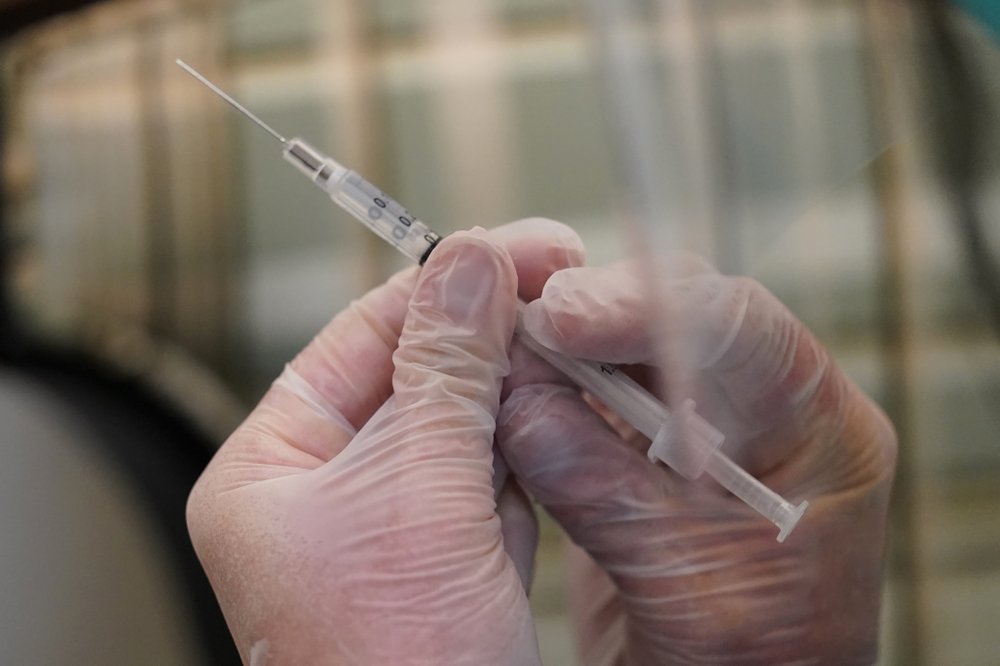
Alabama on Monday will expand who is eligible to receive immunizations against COVID-19 but health officials cautioned there’s still not enough vaccine for everyone who qualifies for a shot. Beginning Monday, everyone 65 and older; educators; grocery store workers; some manufacturing workers; public transit workers; agriculture employees; state legislators, and constitutional officers will be eligible to get vaccinations. Previously only health care workers, first responders, nursing home residents, and people 75 and older were eligible. “If you are eligible for a vaccine, then we will get you one if want to take it. But it is not going to happen immediately for everyone. There is still going to be a while before we have enough,” Dr. Scott Harris, the state health officer, told reporters Friday. Harris said an estimated 1.5 million people will be eligible for the vaccinations. The Alabama Department of Public Health site has a map of providers providing shots. The state is opening large, drive-thru clinics in eight cities: Anniston, Birmingham, Dothan, Huntsville, Mobile, Montgomery, Selma, and Tuscaloosa. Harris said it will require 3 million doses to give the 1.5 million people the two shots required for maximum protection. The state has so far received 923,750 doses and is receiving about 70,000 per week. So far, 436,962 doses have been given. Harris said the remaining doses have someone’s name on it through appointments and clinics for a first or second shot. The University of Alabama at Birmingham announced it is opening an a third clinic, this one at Parker High School, for vaccinations. People do not have to be UAB patients but must fall in the statewide eligibility group. Birmingham Mayor Randall Woodfin urged people in the city to get vaccinated. “We are not out of the woods yet. So I really want to encourage the citizens of Birmingham to take advantage of this site,” Woodfin said. More than 8,500 people in Alabama have died of COVID-19, including confirmed and probable cases. More than 472,000 have tested positive. While the virus causes only mild or moderate symptoms for most people, it can be deadly for the elderly and people with serious health problems including diabetes, cardiovascular disease. Republished with the permission of the Associated Press.
Bills on pandemic power, virus lawsuit protection advance

An Alabama Senate committee on Wednesday advanced bills related to the COVID-19 pandemic, including a proposal to limit the power of the state health officer and another to extend liability in virus-related lawsuits. The Senate Judiciary Committee voted 7-4 to approve a bill by Republican Sen. Tom Whatley of Auburn that would give elected politicians oversight of emergency decisions currently made by the state health officer. The proposal would require the state governor to approve the state health officer’s emergency health orders during a pandemic. It also would require legislative approval to extend an emergency declaration beyond 14 days. “It still maintains emergency powers in emergency situations for the governor. It just transfers the authority for making those decisions from an unelected person to a person elected by the people of Alabama,” Whatley said. Whatley said he did not bring the bill in response to any particular actions by State Health Officer Scott Harris, but said there should be a “check and balance.” Democratic Sen. Vivian Davis Figures of Mobile said lawmakers should not interject themselves when “dealing with life and death situations.” Alabama Gov. Kay Ivey expressed skepticism about the bill on Wednesday. “I don’t know that we need to limit the hands of decision-makers, especially when they’re guided by health people trying to give us good advice too,” Ivey told reporters. “We’ll just have to see where that goes.” Committee members voted 9-2 to advance a bill to shield companies and others from lawsuits during the pandemic. The bill by Republican Sen. Arthur Orr could provide immunity for businesses, health care providers, and others from certain damages claimed by individuals who allege that they contracted or were exposed to the virus. Orr said the bill would give protection to companies, churches, and other entities from virus-related claims only if they were following appropriate precautions. “A business that chose to ignore that guidance and did not require, say like masks in their workplace or took no steps to try to limit the interaction of their workers being very close together then they would not have protection in that safe harbor,” Orr said. The governor and GOP leadership have said the bill is a priority and it could receive a floor vote as soon as Thursday. Opponents said they were concerned the bill would give companies too much protection for risky practices. Robin Hyden of Alabama Arise, an advocacy group for low-income people, urged lawmakers to take more steps to protect workers. “Front-line workers deserve access to health care, hazard pay, and social support programs if they are unable to work in a high-risk field. Too many workers are being driven into risky working conditions with no alternatives,” Hyden said. The Senate committee also advanced medical marijuana legislation by an 8-3 vote. The bill by Republican Sen. Tim Melson would allow people with a qualifying medical condition to purchase marijuana, in forms such as gels or tablets, for medical use from licensed dispensaries. The bill cleared the Senate last year with a 22-10 vote but did not get debated in the House of Representatives. Republished with the permission of the Associated Press.
Alabama debuts online scheduler for COVID-19 vaccinations
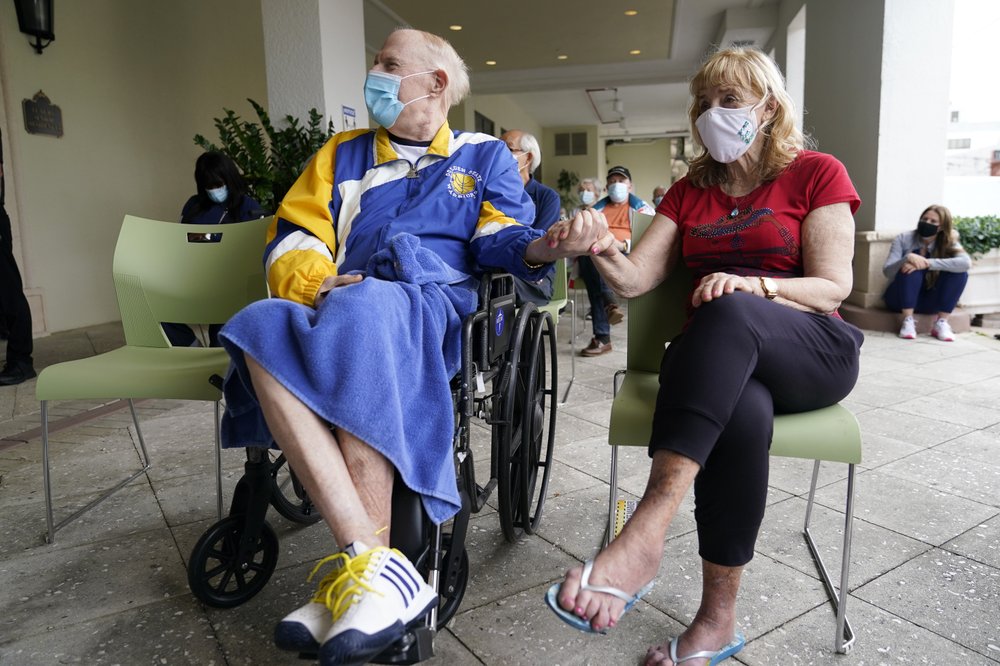
Alabama on Monday launched an online portal for people to check their eligibility for COVID-19 vaccinations and make appointments. The Alabama Department of Public Health said the site at https://www.alcovidvaccine.gov/ will allow those eligible to make an appointment if shots are available in the person’s county of choice. The portal also provides information about additional drive-through and walk-in clinics being offered. Starting Feb. 8, Alabama will expand who is eligible for the vaccine to: everyone 65 and older; educators; court officials; corrections officers; postal employees; grocery store workers; some manufacturing workers; public transit workers; agriculture employees; state legislators and constitutional officers. Currently, only people 75 and older; first responders, health care workers and long-term care residents are eligible. Health officials have cautioned that the state has not received enough doses to vaccinate everyone who will be eligible for shots. “We need people to understand there’s not enough to go around,” State Health Officer Scott Harris said in a recent media briefing. The state, which has nearly 5 million people, has so far received 772,000 vaccine doses, according to state numbers. The expanded eligibility will mean 1.5 million people are eligible for the vaccinations they require two shots for maximum protection. For general information about COVID-19, the COVID-19 Information Hotline number is 1-800-270-7268.
Vaccination eligibility to be expanded starting Feb.8
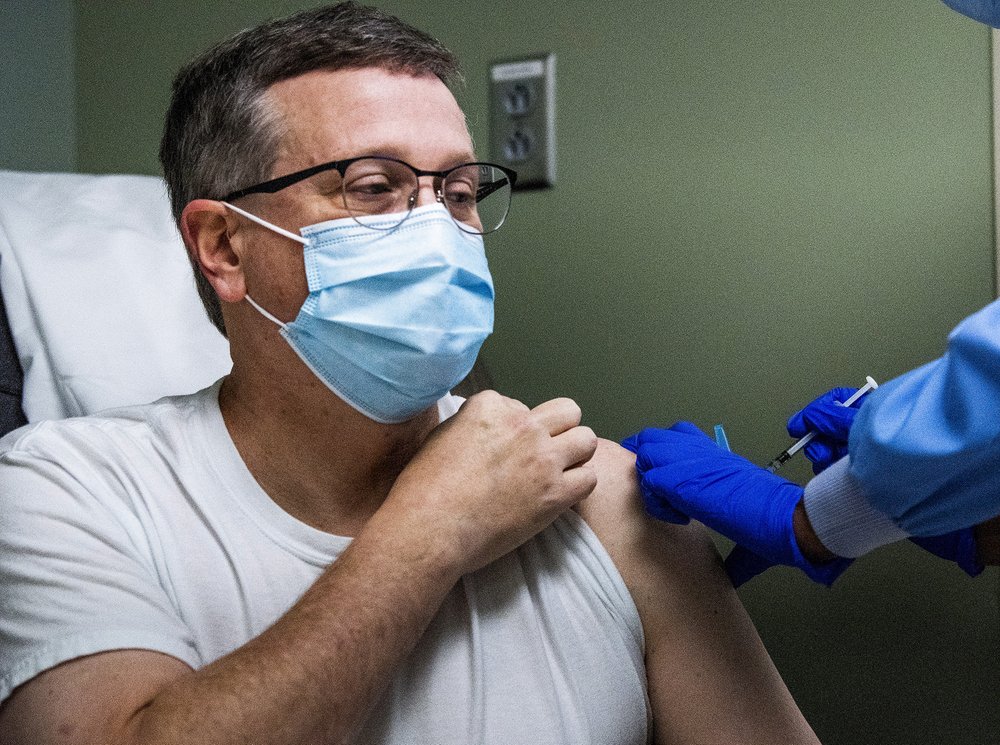
Governor Kay Ivey and the Alabama Department of Public Health (ADPH) announced they will extend eligibility for COVID-19 vaccinations to include people 65 or older, and additional groups of frontline workers starting February 8. These additional groups will add over 1 million people who are now eligible to receive the Covid-19 vaccine in Alabama. Two million people will be eligible to get the vaccine, while only around 100,000 doses are being distributed weekly. The list of frontline critical workers includes first responders, corrections officers, food and agriculture workers, postal workers, grocery workers, public transit workers, judiciary, and educational personnel (teachers, support staff, community college, and higher education). Recently the Alabama Education Association sent a letter to State Health Officer Dr. Scott Harris, asking the state to begin vaccinating education employees “as soon as possible.” 39 school workers in Alabama have died from COVID-19. 772,275 vaccines have been delivered to Alabama, and 42% of those have already been administered. 148,549 doses of the Pfizer vaccine and 175,326 doses of the Moderna vaccine have been used. Gov. Ivey stated, “We have all been frustrated that the supply of vaccine coming from the federal government hasn’t kept up with the demand. To be blunt, we simply haven’t gotten the vaccine that we’ve been promised, and this has created a major backlog of aggravation. Today’s announcement will ensure that as more vaccine is released, we will have a plan in place to get the vaccine in people’s arms more quickly.” “Alabama is expanding its guidance despite the limited vaccine in order to accelerate the vaccine uptake in our state,” Dr. Harris commented. “I want to reiterate that any remaining vaccines that have not been administered are either someone’s first dose and they are waiting on their appointment or they are waiting on their second dose. Any vaccine currently in the state has someone’s name on it.” To schedule an appointment for the free COVID-19 vaccination at a county health department, individuals may call the ADPH COVID-19 Vaccine Scheduling Hotline at 1-855-566-5333. The vaccine providers can be found within the Alabama COVID-19 Vaccine Distribution Dashboard at arcg.is/OrCey. The Vaccine Allocation Plan is available at www.alabamapublichealth.gov/covid19vaccine/assets/adph-covid19-vaccination-allocation-plan.pdf. The ADPH dashboard can be viewed here.
State health officer on vaccine: ‘Not enough to go around’

Alabama will soon announce a time frame for expanding who can get COVID-19 vaccinations, the state health officer told lawmakers Thursday. But he said the supply of vaccine coming into the state remains far short of what is needed. “You’ll hear very soon about expanded eligibility as other states have done,” State Health Officer Scott Harris told lawmakers during budget hearings. Harris told reporters he expects to be able to discuss a time frame Friday. Currently, only health care workers, people 75 and older, first responders and nursing home residents are eligible for vaccinations. Lawmakers described widespread public frustration and anger with the rollout, including sites running out of vaccine and some sites allowing younger people to get vaccinated. Harris said he understood the frustration but the state has been limited by the number of doses it receives. “We all have constituents that are very frustrated, very anxious, very angry a lot of them about the vaccine rollout,” Republican Sen. Arthur Orr from Decatur said. The state of 5 million people received 764,125 doses – enough to give about 380,000 people the two shots required for maximum protection. There are currently more than 700,000 people eligible for the vaccinations. “I know it has been intensely frustrating for a lot of people,” Harris said. “The fundamental problem is there is not enough to go around.” The Biden administration has recommended states make people over 65 eligible for the vaccine. Harris said they are working now to try to determine if there is enough capacity to handle that. “We don’t have a lot of extra vaccine out there, but there may be a little bit,” Harris said. Expanding eligibility to 1.5 million people would require 3 million doses when the state is getting about 60,000 first doses a week. The state is getting an extra 10,000 doses for the next three weeks but it is unclear how long that will last. Alabama has more than 400,000 undistributed doses, according to state numbers. Harris said most of those are designated for people in upcoming appointments including second shots. “The states that have the big giant clinics that you see that are giving out shots all day long, they tend to be giving out their second shots and just hoping the supply is going to keep up. Some of those states have turned away people who are showing up to get second shot because they have already given that shot to another person. “That’s how you run your percentage up and get shots in arms really quickly but it doesn’t guarantee that people are going to get their second shot,” Harris said. Auburn University has been vaccinating people under 75, including people with medical conditions or people who cant maintain distancing at work, according to the school’s vaccination plan. Ryan Easterling, a spokesman for the Alabama Department of Public Health, said while some communities may be ahead of others, the state has reached out to Auburn “to clarify the allocation plan and ensure that community outreach has been adequate for current risk groups prior to entities moving to additional subsets of eligible groups.” Republished with the permission of the Associated Press.


